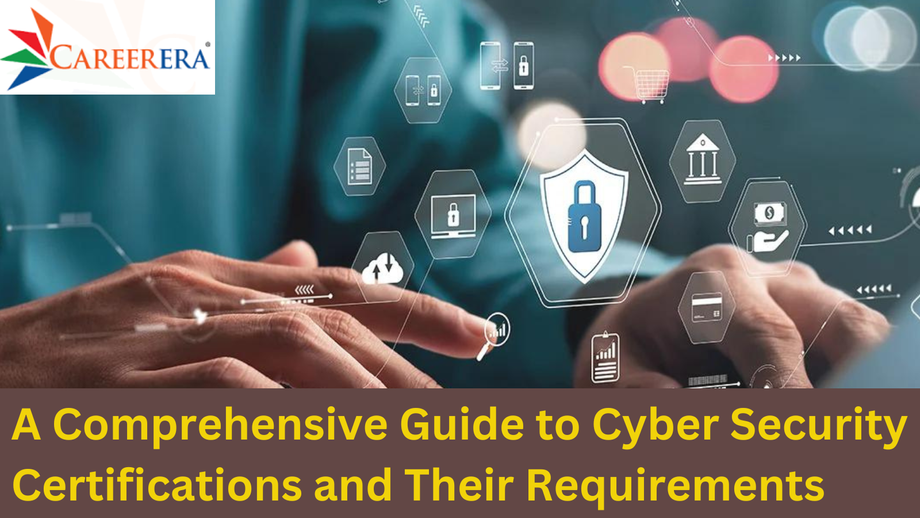The field of cyber security is such that while degrees are essential, having a cyber security certification takes the medal. Certifications have higher bargaining power in gaining one's position in the field. This is owing to the simple fact that certificates are testifying proof that a candidate has higher levels of skills, knowledge, and commitment and is more equipped with the industry's trending information and knowledge with an emphasis on industry standards.
As a professional navigates through the industry career ladder, gaining a cyber security certification will mean opening doors for more specialized or senior positions. It is also a necessity at a certain point in time that professionals renew their certifications. Cyber Security certification comes in varied levels and areas of specialization. There are entry-level certifications as well as specialized certifications that only experienced professionals are eligible for. This gives a great growing scope for cyber security enthusiasts to pursue this profession right from the beginner level and to advance to higher levels.
This post intends to help you have a comprehensive knowledge of how cyber security certification can be attained whether you are a beginner or a professional already working in the field.
Learning more about Cyber Security Certification
Ideally, there are five accrediting bodies that provide certifications in cyber security, namely:
-
CompTIA
-
The EC Council
-
GIAC
-
ISACA
-
ISC(2)
All of these bodies may have similar processes in the certification process like testing, eligibility, renewal policies, etc. However, they all have varying levels of the subject matter of the examination to get a certification. Now that we know there are multiple levels of security certification, it is crucial to learn about the basic requirements for attaining a Cyber Security certification.
Certification through a Cyber Security Course
While there are numerous certifications available out there across multiple levels, it is crucial to learn what entails to secure a certification. The first step to do is to learn the fundamental skills that certification has to offer and the right path to accomplishing that goal.
A cyber security course is often the accurate trajectory to attain certification. Ideally, all the fundamental concepts, practices, and skills are imparted to a prospective or working professional through a well-structured Cyber Security course. While signing up for a course, one has to be wary of the knowledge that a course will impart. Below are the must-have knowledge and must-find skills in a cyber security certification training and course.
-
Fundamental technological skills
-
Programming
-
Risk identification and management
-
Data management and analysis
-
Cloud implementation and management
-
Logical reasoning and troubleshooting
-
Automation implementation
-
Communication skills
-
Adaptability
-
Application security and protection
A cyber security course intended to train candidates for a cyber security certification must cover the core specifics of cyber security and equip candidates with accurate skills. A cyber security course not only trains the fundamental technical knowledge but also imparts critical soft skills necessary to succeed as a cyber security professional.
Most Popular Cyber Security Certification Choices
-
Certified Ethical Hacker (CEH)
-
Offensive Security Certified Professional (OSCP)
-
Certified Information Security Auditor (CISA)
-
Certified Information Security Manager (CISM)
-
GIAC Certified Incident Handler (GCIH)
-
CompTIA Security +
-
Systems Security Certified Practitioner (SSCP)
-
Certified Information Systems Security Professionals (CISSP)
-
Information Systems Security Architecture Professional (ISSAP)
-
Information Systems Security Engineering Professional (ISSEP)
-
Information Systems Security Management Professional (ISSMP)
When scanning through the numerous options of a cyber security course, it is important to check whether the course will provide you with the necessary skills. Evaluating the course content will come in handy to learn if the training will equip you with the potential to get through a certification exam first and secondly check if the courses will help you in
fostering the necessary skills that are essential in any of the cyber security jobs.
Make sure a cyber security course will give you the potential necessary to work as a skilled professional. A cyber security professional who is certified is believed and expected to have the following competencies to carry out their responsibilities in their position.
-
Have strong communication skills, in written and oral.
-
Ability to multitask.
-
Adept at solving complex problems incorporating analysis, experience, research and professional technical tasks, and problem-solving.
-
Operate as an individual contributor to an organization or as a strong team member
-
Have the sensibility and adhere to regulations such as privacy and intellectual property rights.
-
Adhere to ethics and codes of conduct.
A cyber security course is the right path to attaining not just a cyber security certification but acquiring all the requisite skills to function as a potential cyber security practitioner.
Also Read : The Ultimate Guide to Cyber Security Certification

